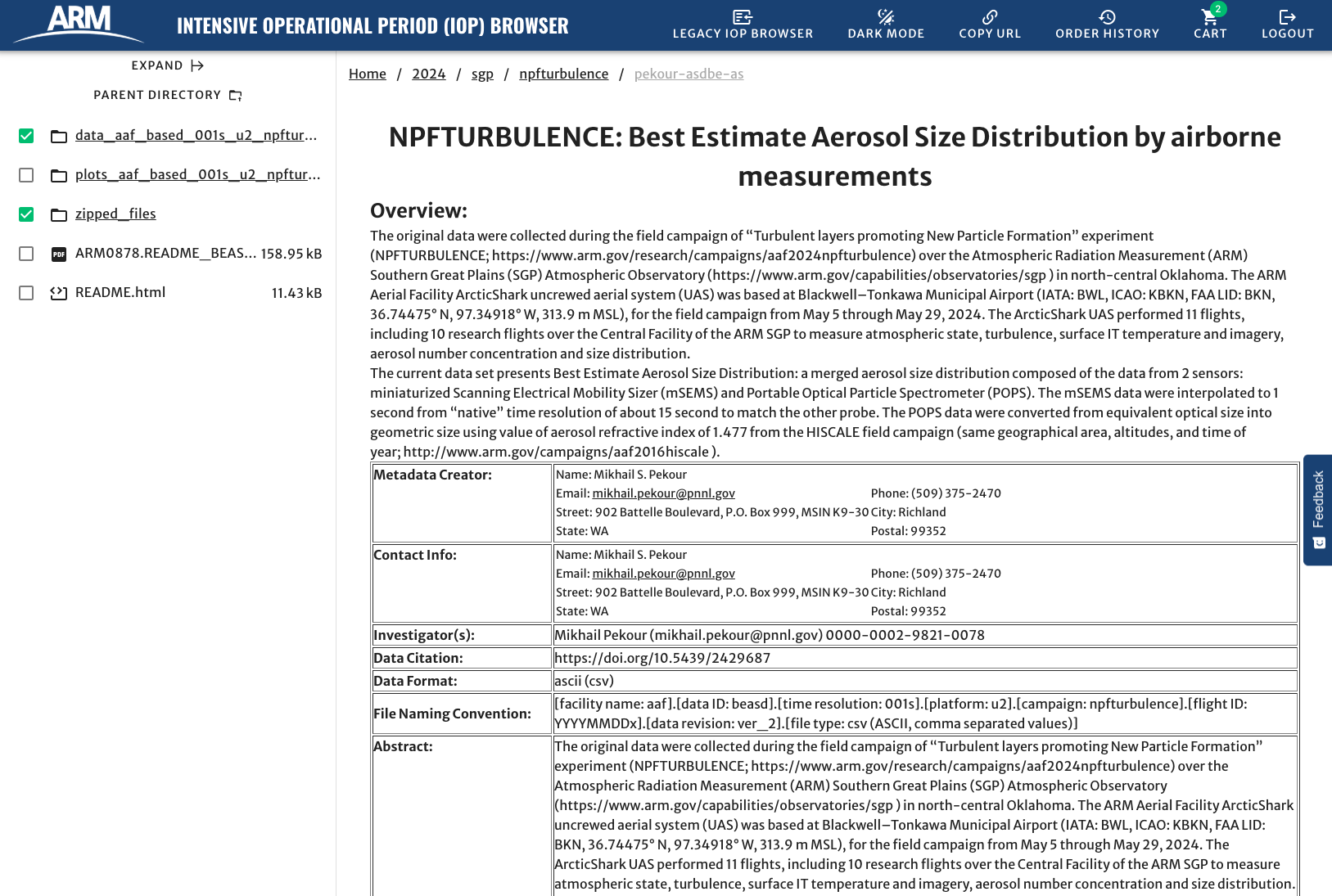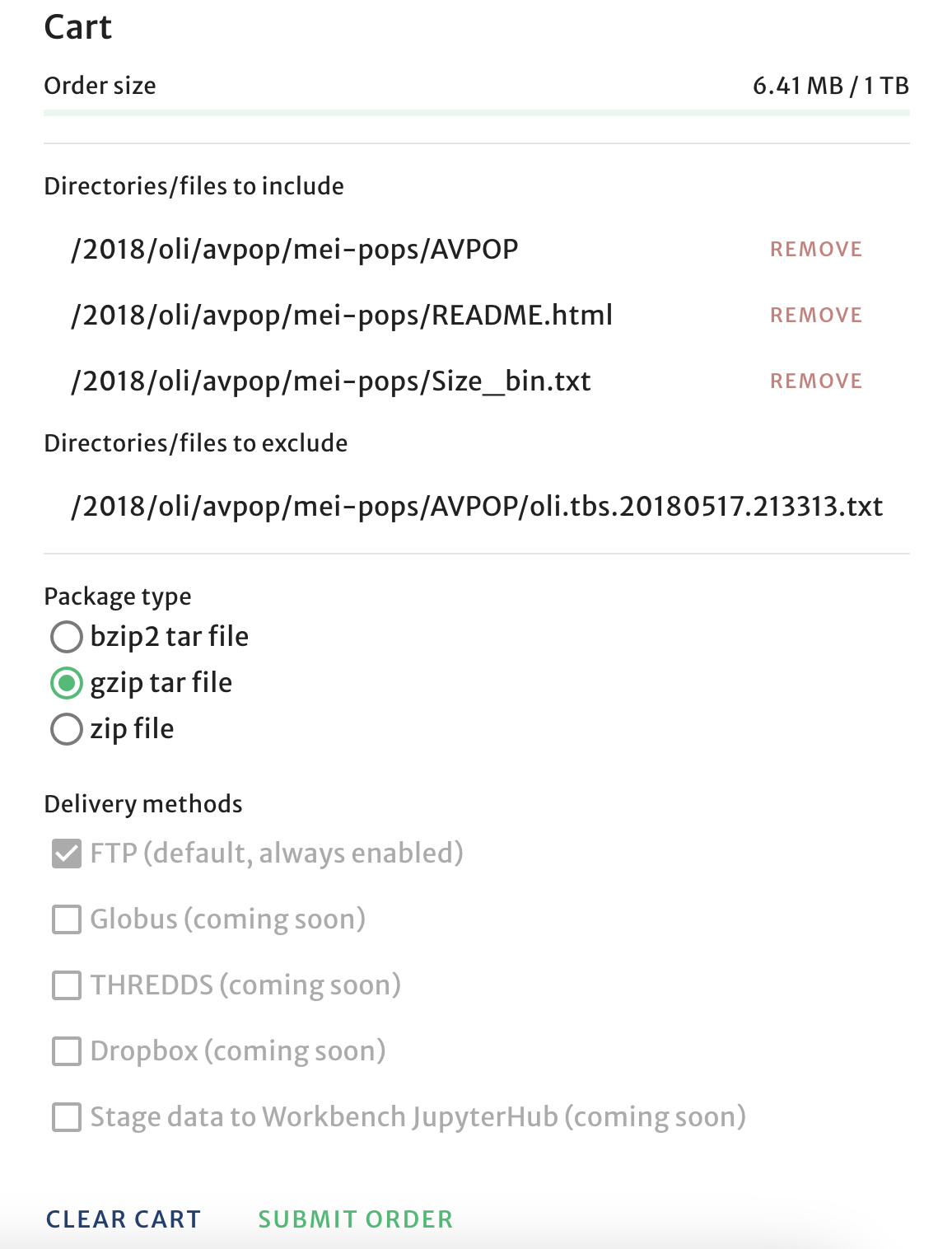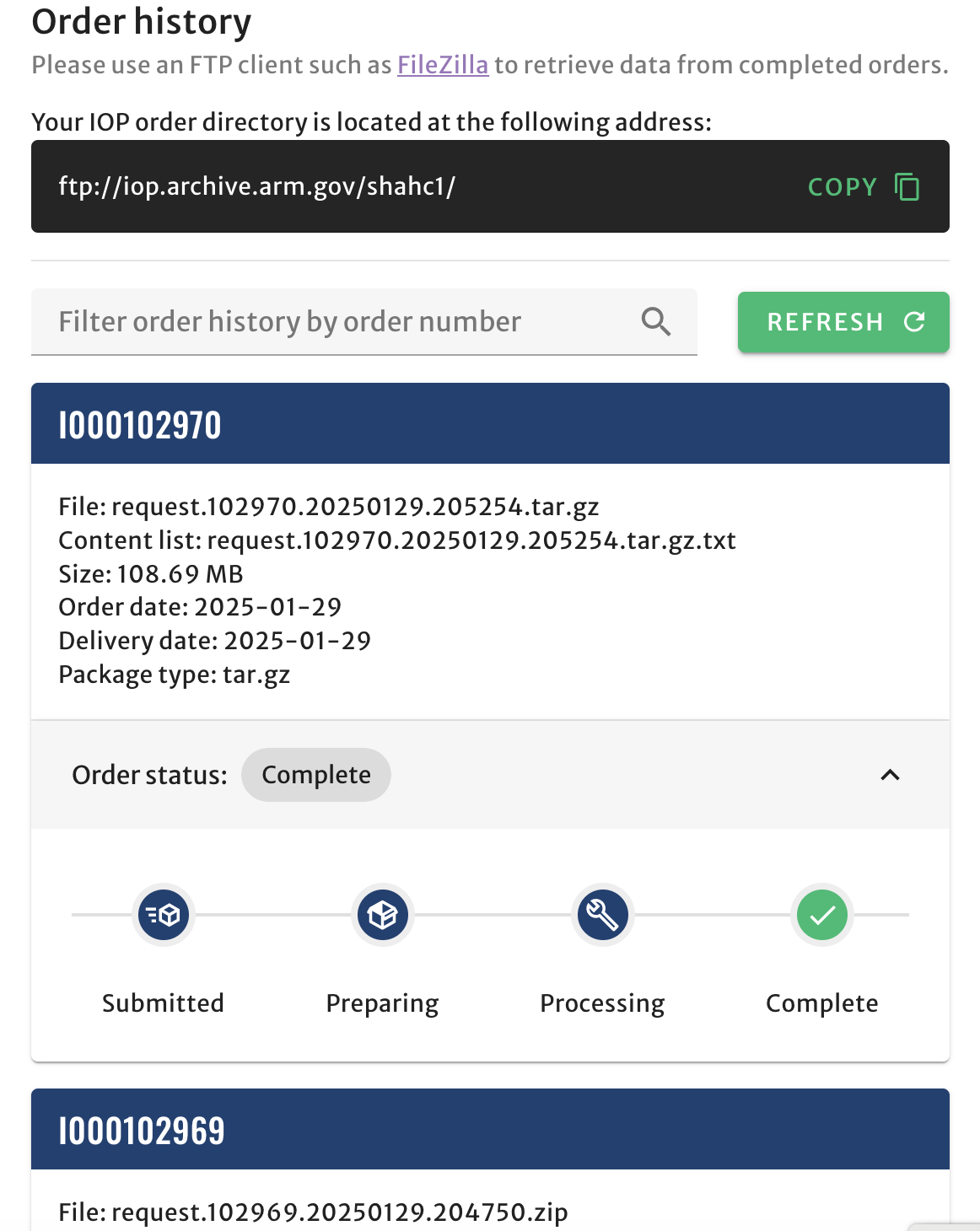ARM Releases New Browser for Intensive Operational Period Data
Published: 17 April 2025
Changes are designed to add up to a smoother user experience
The Atmospheric Radiation Measurement (ARM) User Facility has rolled out a new Intensive Operational Period (IOP) Browser—located at iop.arm.gov—to improve the experience of users wanting to find and download ARM IOP data, including products from principal investigators and data collected during field campaigns.
This browser makes it easier to navigate IOP data, which can vary significantly in structure, format, and organization compared with standardized ARM datastreams, which adhere to rigorously defined metadata and file-naming conventions.
The previous IOP Browser served ARM users for over 20 years before the ARM Data Center decided it was time to rebuild the system and update the design.
“It did the job, it was pretty solid, but it got to the point with our evolving architecture, it became a little bit tougher to maintain because it’s an older tech stack,” says Wade Darnell, who leads the ARM Data Center’s user tools team. “Everything else is being brought up to newer versions. This was a little bit older, so that was one of the things that prompted this redesign.”

Similarities and Differences

While the new IOP Browser has a data hierarchy structure like the previous version, which lets users drill down within directories and view individual files, there are some major differences between the browsers.
The most obvious difference is that the new browser has a cleaner, modernized user interface that is more like other ARM Data Center applications.
“That consistent look and feel across different apps was something users expressed an interest in,” says Darnell.
In the top navigation bar, the new IOP Browser provides several key features, including:
- Cart: View information on orders in progress, such as order size, directories and files to include, package type, and delivery methods.
- Order History: Access the status of orders and filter them by order number. To see the current status of an order, refresh the order history. The menu also gives an FTP link for retrieving data on completed orders.
- Dark Mode/Light Mode: Switch back and forth between light and dark mode for more comfortable viewing.
- Copy URL: Copy the link to the current page so it can be pasted into an email, an address bar, or a Word file.
In the browser, a user can click on a file and preview it instantly before downloading it. This option is currently available for .txt, .rtf, .ict, and .csv files.
The new IOP Browser also allows for larger orders. The ARM Data Center increased the maximum order size to 1 terabyte—double the previous browser’s limit of .5 terabyte. The new size limit is the same as in ARM’s Data Discovery portal, which provides access to all ARM data.

Links to IOP data in Data Discovery now point to the new IOP Browser.
Technical upgrades have made the browser more secure and reliable. These improvements have also allowed ARM staff to make system updates faster and streamline the collection of data order metrics for better tracking.
More details on the browser are available in a poster by lead developer Chirag Shah, Darnell, and ARM Chief Data and Computing Officer Giri Prakash.
“I’m proud of the ARM Data Center team—led by Wade Darnell—for taking on the ambitious task of rebuilding the IOP Browser from the ground up,” says Prakash. “The result is a modern, user-friendly platform that not only aligns with our current infrastructure but also delivers a significantly improved experience for our users.”
What’s Next
Over the next several months, more changes are coming to the IOP Browser, including the addition of search capabilities.
Currently, FTP is the only available delivery method for IOP data orders. Soon, the ARM Data Center plans to add more delivery options, including Globus, Dropbox, and Thematic Real-time Environmental Distributed Data Services (THREDDS).
Eventually, users will be able to stage data from the IOP Browser to the ARM Data Workbench and begin working with the data without having to download them.
The previous IOP Browser will remain accessible through a link on the new browser for at least a few more months before it is retired.
Share Your Feedback
The ARM Data Center wants your input to make sure the IOP Browser is meeting your needs. Users can submit questions or comments by using the Feedback tab on the right-hand side of the browser.
Keep up with the Atmospheric Observer
Updates on ARM news, events, and opportunities delivered to your inbox
ARM User Profile
ARM welcomes users from all institutions and nations. A free ARM user account is needed to access ARM data.


















